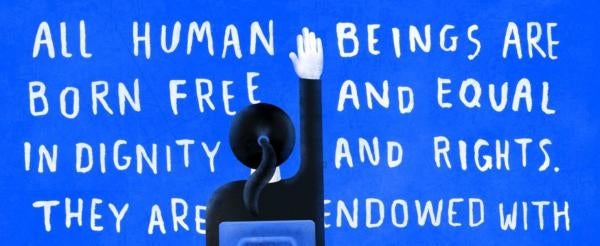On Monday, in a special edition of this newsletter, we highlighted ongoing mass atrocity crimes in Darfur, Sudan, and promised updates from our researchers interviewing survivors in neighboring Chad.
On Tuesday, we presented a shocking account of a 16-year-old girl who barely escaped the slaughter in El Geneina, the regional capital of West Darfur. The day after, we published an eye-witness testimony of an attack on a medical clinic. Yesterday, we continued with a survivor’s description of foreign fighters working with the Rapid Support Forces (RSF) and their allied militias to carry out atrocities.
Today, my colleagues, Belkis Wille and Jean-Baptiste Gallopin, have sent the following testimony from our final witness in this week’s series.
The 43-year-old man was in a hospital in Adre, eastern Chad, getting treatment for gunshot wounds he received while trying to flee fighting in El Geneina, as part of a mass exodus of civilians, many ethnic Massalit, from the town. He was one of many there with similar injuries.
There was very heavy bombing in that area affecting women and children, and many people were injured and died because of this.
So, people decided to evacuate to a safer area, to Ardamata [near a military base, northeast of El Geneina].
We started our journey from El Madares area [a neighbourhood of El Geneina]. We started fleeing at night until we reached Al Naseem bridge. By then, it was already sunrise, and there was a big crowd with people on foot, on donkey carts, and in vehicles. Movement was very difficult because of the crowd.
As the sun rose, we discovered that we were being ambushed from all directions.
They shot me, and I got injured there. The bullet that shot me actually killed someone else, hitting them in the head. Many people were killed.
The witness was then taken by the assailants and dumped in a location with other injured and dead men.
[They] collected the injured and the dead bodies under a tree, near a dirty pool of water.
At this pool, they beat people with sticks, and they also forced us to drink the water. They forced us to keep our heads inside the water, and if we removed our heads from the water, we would be beaten.
And from there, they thought that all of us were already dead.
[The assailants] were from Arab tribes. They had sniper guns, machine guns, AKs, different types of weapons. They were in civilian clothes, but in fact of all of them were with the RSF.
They asked you for your tribe first. If you say you are Massalit, you will be tortured more than the others. They will tell you, “This is your land? This is your land?”
They will ask you for your tribe. That’s the question they were asking everybody. So, some people would lie and say they are [ethnic] Bargu or Fur, but all of them were also killed.
The man’s ordeal didn’t end there.
We [were initially] 10 in that water, but they started to collect people from other streets and bring them with us. And they [the attackers] said, “collect these dead bodies or they will contaminate the area.” I cannot tell the number of dead bodies. Many, many were killed.
The attackers then dumped the witness with other bodies in a vehicle and drove them away to the side of Leria mountain, on the northern outskirts of El Geneina.
I was in the [the back of the pickup] vehicle when they dropped dead bodies on top (of me).
They carried the dead bodies, when they threw us on that mountain, they said “make sure all of them died” so they opened fire on us again. And I was injured in my left leg (shows scar in upper left thigh)
But fortunately, I was not severely injured by that bullet.
He said that there were 20 of them, all men, with the youngest around 25 or 30 years old. Only two among them survived.
I became unconscious, and I woke up the next day. There was an [older man] next to me and that he was also alive. He had been severely beaten… and shot in the hand.
I said to him, “Are you ok?” “I am ok,” he said. “Can you walk?” “Yes, I can,” he said.’ I asked him, “Where is Ardamata from here?”
He showed me the direction of Ardamata, and we started walking together. We left at 8 a.m., and at 6 p.m. we reached Ardamata.
Two people stopped us. One of them was armed, and the other was not. The armed man was holding an AK-47. He said, “Stop here, stop here,” and he asked me which tribe I am from. I said Massalit, and he said, “Since the time of the Prophet, people were not able to control the Arabs. Who are you to control the Arabs?”
I told him, ‘Kill me,” and he said, “I will not kill someone like you” because at the time my body was covered in blood.
The two men were able to continue their journey, and eventually made it to Adre in eastern Chad.
The warring parties, and notably Rapid Support Forces and their allied militias, should allow people to move safely. Access to safe medical care inside Sudan and in neighboring countries should be guaranteed.






